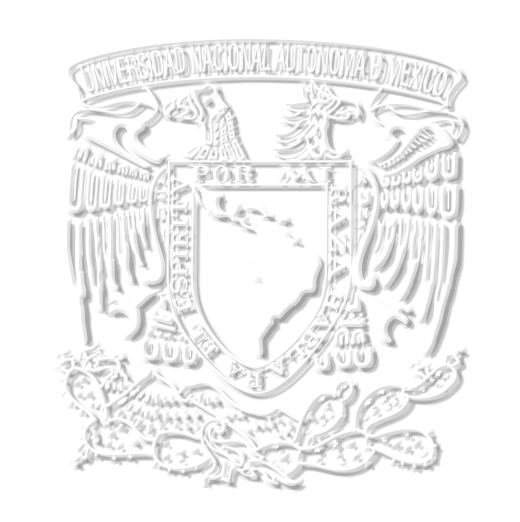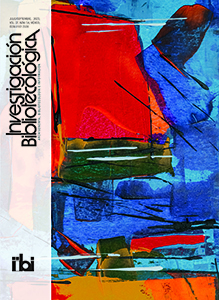Resumo
Almost 25 years ago, the Digital Object Identifier (DOI) was implemented with the purpose of providing a unique and persistent form of document identification. As DOIs can be assigned to any object, journals rapidly adopted their use as it eases the process of identifying a specific document, thus increasing its visibility. However, while studying the impact of papers published by Chilean researchers in disciplines related to Social Sciences, Arts, and Humanities, we noticed that some journals published a considerable proportion of documents without DOIs. Thus, we questioned if this was due to a lack of DOI adoption by these journals or if it was a database processing error. Our findings indicate that while most journals have adopted the use of DOI for article-type documents, many of the Web of Science and Scopus records do not include this information. To overcome this issue, databases need to ensure the accuracy and consistency of their data, while the editorial management team of each journal ought to confirm that all the metadata from their articles has been properly registered by these databases. Undoubtedly, the use of DOI benefits all academics as it facilitates the discoverability and retrieval of the published articles.
Referências
Ansorge, L. (2023) “Hidden limitations of analyses via alternative bibliometric services”. Scientometrics 128(3): 2031-2033. https://doi.org/10.1007/s11192-022-04626-w
Breuer, Timo., Philipp Schaer y Dirk Tunger. 2022. “Relevance assessments, bibliometrics, and altmetrics: a quantitative study on Pubmed and arXiv”. Scientometrics 127(5): 2455-2478. https://doi.org/10.1007/s11192-022-04319-4
Chen, Ming y Linzi Wang. 2022. “An Altmetrics and citation analysis of selected predatory journals in library and information science field”. Journal of Academic Librarianship 48(6): 102618. https://doi.org/10.1016/j.acalib.2022.102618
Cintra, Paulo Roberto, Ariadne Chloe Furnival y Douglas Henrique Milanez. 2018. “The impact of open access citation and social media on leading top information science journals”. Investigacion Bibliotecologica 32(77): 117-132. https://doi.org/10.22201/iibi.24488321xe.2018.77.57874
Fanelli, Daniele. 2009. “How many scientists fabricate and falsify research? A systematic review and meta-analysis of survey data”. PLoS ONE 4(5): e5738. https://doi.org/10.1371/journal.pone.0005738
Franceschini, Fiorenzo, Domenico Maisano y Luca Mastrogiacomo. 2015. “Errors in DOI indexing by bibliometric databases”. Scientometrics 102(3): 2181-2186. https://doi.org/10.1007/s11192-014-1503-4
Frandsen, Tove Faber y Jeppe Nicolaisen. 2008. “Intradisciplinary differences in database coverage and the consequences for bibliometric research”. Journal of the American Society for Information Science and Technolog y 59(10): 1570-1581. https://doi.org/10.1002/asi.20817
Germain, Anne Carol. 2000. “URLs: Uniform resource locators or unreliable resource locators”. College & Research Libraries 61(4): 359-365. https://doi.org/10.5860/crl.61.4.35
Gorraiz, Juan, David Melero-Fuentes, Christian Gumpenberger y Juan Carlos Valderrama-Zurian. 2016. “Availability of digital object identifiers (DOIs) in Web of Science and Scopus”. Journal of Informetrics. 10(1): 98-109. https://doi.org/10.1016/j.joi.2015.11.008
Habermann, Ted. 2023. “Improving domain repository connectivity”. Data Intelligence 5(1): 6-26. https://doi.org/10.1162/dint_a_00120
Hammarfelt, Bjorn y Gaby Haddow. 2018. “Conflicting measures and values: How humanities scholars in Australia and Sweden use and react to bibliometric indicators”. Journal of the Association for Information Science and Technolog y 69(7): 924-935. https://doi.org/10.1002/asi.24043
Haynes, J. 1999. “New Journal of Physics: a web-based and author-funded journal.” Learned Publishing. Vol. 12: 265-269
Hvistendahl, Mara. 2015. “China pursues fraudsters in science publishing: Measures may not be enough to stem the tide, some fear”. Science 350(61264): 1015. https://doi.org/10.1126/science.350.6264.1015
Khurana, Parul, Geetha Ganesan, Gulshan Kumar, y Kiran Sharma. 2022. “A Bibliometric Analysis to Unveil the Impact of Digital Object Identifiers (DOI) on Bibliometric Indicators”. Proceedings of Third International Conference on Computing, Communications, and Cyber-Security, Lecture Notes in Networks and Systems 421: 859-869. https://doi.org/10.1007/978-981-19-1142-2_67
Krauskopf, Erwin, 2019. “Missing documents in Scopus: the case of the journal Enfermeria Nefrologica”. Scientometrics 119(1): 543-547. https://doi.org/10.1007/s11192-019-03040-z
Krauskopf, Erwin. 2021. “Article processing charge expenditure in Chile: The current situation”. Learned Publishing 34(4): 637-646. https://doi.org/10.1002/leap.1413
Larivière, Vincent, Éric Archambault, Yves Gingras y Étienne Vignola-Gagné. 2006. “The place of serials in referencing practices: Comparing natural sciences and engineering with social sciences and humanities”. Journal of the American Society for Information Science and Technolog y 57(8): 997–1004. https://doi.org/10.1002/asi.20349
Liu, Jia. 2021. “Digital object identifier (DOI) and DOI services: An overview”. LIBRI 71(4): 349-360. https://doi.org/10.1515/libri-2020-0018
Liu, Chieh y Mu-Hsuan Huang. 2022. “Exploring the relationships between altmetric counts and citations of papers in different academic fields based on co-occurrence analysis”. Scientometrics 127(8): 4939-4958. https://doi.org/10.1007/s11192-022-04456-w
Liu, Weishu. 2020.” Accuracy of funding information in Scopus: a comparative case study”. Scientometrics 124(1): 803-811. https://doi.org/10.1007/s11192-020-03458-w
Liu, Weishu, Meiting Huang y Haifeng Wang. 2021. “Same journal but different numbers of published records indexed in Scopus and Web of Science Core Collection: causes, consequences, and solutions”. Scientometrics 126(5): 4541-4550. https://doi.org/10.1007/s11192-021-03934-x
Marx, Werner y Lutz Bornmann. 2015. “On the causes of subject-specific citation rates in Web of Science”. Scientometrics 102(2): 1823-1827. https://doi.org/10.1007/s11192-014-1499-9
Mugnaini, Rogerio, Grischa Fraumann, Esteban F. Tuesta y Abel L. Packer. 2021. “Openness trends in Brazilian citation data: factors related to the use of DOIs”. Scientometrics 126(3): 2523-2556. https://doi.org/10.1007/s11192-020-03663-7
Manjunatha, G., B.T.S Kumar y H. Lakshmana. 2020. “Longevity of URL citations Cited in LIS journal articles: A Webometric Study”. Library Philosophy and Science 2020: 3965
Nagajara, Aragudije, Shine Joseph, S.A., Hyla Polen y Kevin Clauson. 2011. “Disappearing act: Persistence and attrition of uniform resource locators (URLs) in an open access medical journal”. Program Electronic Library and Information Systems 45(1): 98-106. https://doi.org/10.1108/00330331111107420
Pajic, Dejan, Tanja Jevremov and Marko Skoric. 2019. “Publication and citation patterns in the social sciences and humanities: A national perspective”. Canadian Journal of Sociolog y/Cahiers Canadiens de Sociologie 44(1): 67-94. https://doi.org/10.29173/cjs29214
Parnas, David Lorge. 2007. “Stop the numbers game”. Communications of the ACM 50(11): 19-21. https://doi.org/10.1145/1297797.1297815
Paskin, Norman. 2005. “Digital object identifiers for scientific data”. Data Science Journal 4: 12-20.
Purnell, Philip J. 2022. “The prevalence and impact of university affiliation discrepancies between four bibliographic databases—Scopus, Web of Science, Dimensions, and Microsoft Academic”. Quantitative Science Studies 3(1): 99-121. https://doi.org/10.1162/qss_a_00175
Sampath Kumar, B.T. y V. Vinay Kumar. 2013. “HTTP 404-page (not) found: Recovery of decayed URL citations. Journal of Informetrics 7(1):145–157. https://doi.org/10.1016/j.joi.2012.09.007
Santiago-Padilla, Victor y Yalitza Therly Ramos-Gil. 2022. Indicators to achieve a better positioning of Ecuadorian scientific journals”. Revista Bionatura 7(1): 2. https://doi.org/10.21931/RB/2022.07.01.2
Sanz-Casado, Elias, Daniela De Filippo, Rafael Aleixandre Benavent, Vidar Roeggen y Janne Pölönen. 2021. “Impact and visibility of Norwegian, Finnish and Spanish journals in the fields of humanities”. Scientometrics 126(11): 9031-9049. https://doi.org/10.1007/s11192-021-044169-6
Savchenko, Igor y Denis Kosyakov. 2022. “Lost in affiliation: apatride publications in international databases”. Scientometrics 127(6): 3471-3487. https://doi.org/0.1007/s11192-022-04392-9
Shanthakumari, Keshava. 2021. “An analysis of persistence and obsolescence of web citations of pavement engineering literature”. Library and Philosophy Practice 2021: 1-9
Shuo, Xu, Liyuan Hao, Xin An, Dongsheng Zhai y Hongshen Pang. 2019. “Types of DOI errors of cited references in Web of Science with a cleaning method”. Scientometrics 120(3): 1427-1437. https://doi.org/10.1007/s11192-019-03162-4
Vinay Kumar, D., y V.T. Sampath Kumar. 2017. “Finding the unfound: Recovery of missing URLs through Internet Archive”. Annals of Library and Information Science. 64(3): 165-171
Wang, Weilang, Lvxiang Deng, Bin You, Ping Zhang y Yifeng Chen. 2018. “Digital object identifier and its use in core Chinese academic journals: A Chinese perspective”. Learned Publishing 31: 19-154. https://doi.org/10.1002/leap.1137
Zhu, Junwen; Guangyuan Hu y Weishu Liu. 2019. “DOI errors and posible solutions for Web of Science”. Scientometrics 118(2): 709-718. https://doi.org/10.1007/s11192-018-2980-7
Os autores
- Devem enviar, para a revista Investigación Bibliotecológica: archivonomía, bibliotecología e información, a Carta de autorização para a publicação de artigos.
- cedem o total direito de propriedade intelectual do material submetido à revista; sendo permitido, entretanto, compartir o conhecimento contido na obra nos seguintes âmbitos:
- Apoio à docência;
- Conferências;
- Auto arquivamento em repositórios académicos.
- Difusão em redes acadêmicas.
- Difusão em blogs, site e página pessoal do autor.
Essa difusão será possível sempre e quando se respeitem as condições de uso dos conteúdos da revista, de acordo à licença Creative Commons:Atribución – No comercial – Sin Derivar 4.0 empregada; e que nos três últimos casos a descarga do texto completo se realize através de links do sistema DOI.
Política de auto arquivamento
Em caso de publicação da obra como modo de auto arquivamento, os autores devem cumprir com as seguintes condições:
a) Reconhecer o direito de autor da revista Investigação Biblioteconômica: arquivologia, biblioteconomia e informação.
b) Estabelecer um link com a versão original submetida no site da revista (DOI do artigo, por exemplo).
c) Difundir a versão definitiva publicada pela revista.
Licença dos conteúdos
A revista Investigación Bibliotecológica: archivonomía, bibliotecología e información permite o acesso e uso de seu conteúdo segundo a licença Creative Commons: Atribuição – Não comercial – Sem Derivar 4.0.

O que implica que os conteúdos apenas podem ser lidos e compartilhados se se reconhece e menciona a autoria da obra. Não se permite o uso da obra alterada ou com fins lucrativos.
Demarcação de responsabilidades
A revista não se faz responsável em caso de que o autor tenha incorrido em fraude ou plágio científico, tampouco dos elegidos pelos autores. Igualmente, não se faz responsável pelos serviços oferecidos por terceiros, a partir dos links disponíveis nos artigos dos autores.
Corroborando, a revista disponibiliza as responsabilidades que o autor deve cumprir no processo de publicação na revista Investigación Bibliotecológica: archivonomía, bibliotecología e información, no seguinte link: Responsabilidades do autor.
No caso de migração de conteúdo do site oficial da revista, implicando alteração de IP ou domínio, o diretor ou editor da revista deverá informá-lo aos autores.




